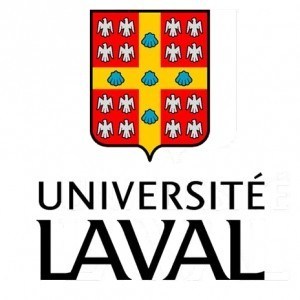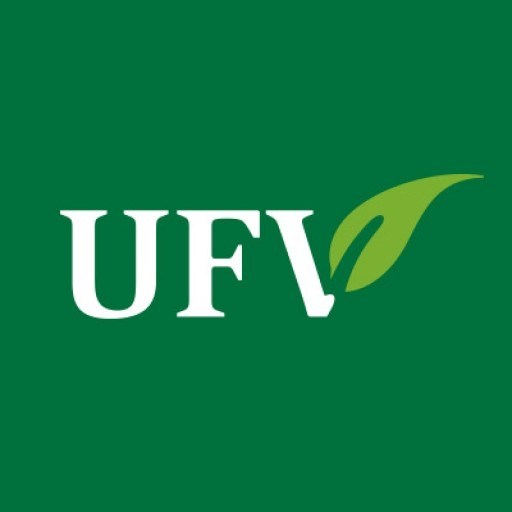Photos of university / #ulaval
The Bachelor of Science in Chemistry at Laval University offers students a comprehensive and rigorous education in the fundamental principles and practical applications of chemistry. Designed to prepare graduates for diverse careers in research, industry, education, and environmental management, this program emphasizes both theoretical understanding and hands-on experience. Students will explore core areas such as organic, inorganic, physical, and analytical chemistry, gaining a solid foundation in chemical theories and methodologies. The curriculum includes courses in laboratory techniques, chemical analysis, safety protocols, and instrumentation, equipping students with essential skills for professional success. Additionally, the program fosters critical thinking, problem-solving abilities, and scientific communication skills, enabling graduates to excel in multidisciplinary environments. Emphasis is placed on research and experimental work, with opportunities to participate in ongoing projects under faculty supervision. Laval University's state-of-the-art laboratories and facilities provide an ideal setting for experiential learning and innovation. The program also encourages students to engage with contemporary issues such as sustainable development, green chemistry, and environmental protection, preparing them to contribute effectively to society’s evolving needs. Graduates of the Bachelor of Science in Chemistry will be well-equipped for careers in chemical industries, pharmaceuticals, environmental agencies, or further studies in graduate research programs. The program is delivered by experienced faculty members committed to student success and scientific advancement, ensuring a dynamic educational experience that blends academic excellence with practical relevance.
The Bachelor of Science in Chemistry at Laval University provides students with a comprehensive education in the fundamental principles and practical applications of chemistry. This program is designed to equip students with a solid theoretical foundation in organic, inorganic, analytical, physical, and biochemistry, alongside developing their laboratory skills and scientific reasoning. Throughout the course of study, students engage in a variety of coursework that covers the core areas of chemistry, ensuring a well-rounded understanding of the discipline. Emphasis is placed on critical thinking, problem-solving, and research methodologies, preparing graduates for careers in research, industry, education, or further study at the graduate level. The program incorporates extensive laboratory work, allowing students to gain hands-on experience with modern instruments and techniques used in chemical analysis and synthesis. Additionally, students have opportunities to participate in research projects supervised by experienced faculty members, fostering innovation and independent investigation. The curriculum also includes courses in mathematics, physics, and computer science to support the chemical sciences. Laval University’s chemical sciences program emphasizes practical skills, scientific integrity, and environmental awareness, encouraging responsible and sustainable practice. Graduates of the program are well-prepared to pursue careers in pharmaceuticals, environmental sciences, materials development, or academia. The university's state-of-the-art laboratories and collaborative research environment provide an ideal setting for students to develop their scientific expertise and innovative thinking. Overall, the Bachelor of Science in Chemistry at Laval University aims to produce skilled and knowledgeable scientists who can contribute effectively to advancements in chemical research and industry.
Program requirements for the Bachelor of Science in Chemistry at Laval University include the completion of foundational courses in basic sciences such as General Chemistry, Organic Chemistry, Inorganic Chemistry, Physical Chemistry, and Analytical Chemistry. Students are also required to undertake mathematics courses, typically including Calculus and Linear Algebra, as well as introductory physics to build a solid scientific background. The curriculum emphasizes a combination of theoretical coursework and practical laboratory work to develop both conceptual understanding and hands-on skills essential for chemical analysis, synthesis, and research.
In addition to core courses, students must complete elective courses that allow specialization in areas such as biochemistry, environmental chemistry, inorganic chemistry, or materials science, aligning with their interests and career ambitions. The program structure is designed with progressive levels of difficulty, starting from fundamental principles and advancing toward complex topics, including research methodology and scientific writing. A significant component of the program involves a capstone project or research internship, where students gain experience in designing experiments, analyzing data, and communicating scientific results.
Furthermore, students are encouraged to participate in seminars, workshops, and symposia organized by the department to promote professional development and networking within the scientific community. Language proficiency requirements typically include satisfactory completion of courses in French and English, given Canada's bilingual environment. To graduate, students must accumulate a specified number of credit hours as set by Laval University’s academic regulations, maintain a minimum grade point average (GPA), and pass all laboratory and theoretical assessments. Prerequisites for advanced courses generally include successful completion of related lower-division courses, ensuring students have the necessary background to succeed in specialized topics. Overall, the program strives to produce graduates with comprehensive knowledge of chemistry, equipped with analytical skills, scientific literacy, and research experience, suitable for careers in industry, academia, or further graduate studies.
The financing of the Chemistry undergraduate program at Laval University is primarily composed of a combination of government funding, university resources, and student contributions. As a public university in Quebec, Laval University receives substantial financial support from provincial and federal government agencies, which helps subsidize tuition fees and operational costs associated with delivering the program. These governmental grants are allocated based on various factors including enrollment numbers, program quality, and research activities, ensuring the stability and continuous improvement of the Chemistry program.
Students pursuing the Chemistry bachelor's degree have access to a variety of financial aid options to help cover educational expenses. Québec residents typically benefit from reduced tuition fees due to provincial subsidies, making higher education more accessible. Non-resident students are subject to higher tuition rates, but may access specific bursaries and scholarships aimed at international students. Laval University also offers internal scholarships based on academic achievement, financial need, and other criteria, to support students financially throughout their studies.
In addition to government and internal funding, many students finance their education through external sources such as private scholarships, research grants, and sponsorships. The university encourages students to seek external funding opportunities, including national and regional scholarships provided by organizations like the Canadian government, private foundations, and industry partners interested in the development of future chemists.
The institution also promotes work-study programs, internships, and part-time employment opportunities both on and off campus to assist students in financing their education and gaining practical experience simultaneously. These opportunities are typically coordinated by the university’s career services and partnerships with local industries, fostering a practical financial support system for students in the Chemistry program.
Moreover, Laval University occasionally offers special funding initiatives for students engaged in research projects or participating in academic exchanges, further diversifying the sources of financing available. The university's commitment to making higher education affordable is evident in its ongoing efforts to expand scholarship offerings and financial aid programs targeted at Chemistry students.
Overall, the financing of the Chemistry undergraduate program at Laval University is a multi-faceted system designed to ensure equitable access and support for students through government subsidies, internal scholarships, external funding, and employment opportunities. This comprehensive approach helps maintain the high quality of education and research within the program, while addressing the financial needs of diverse student populations.
The Bachelor of Science in Chemistry at Laval University offers students a comprehensive education in the fundamental principles and applications of chemistry. The program aims to develop a solid foundation in organic, inorganic, physical, analytical, and biochemical chemistry, preparing graduates for diverse careers in industry, research, education, and healthcare. The curriculum combines theoretical coursework with practical laboratory experience, enabling students to acquire essential skills in chemical analysis, experiment design, and data interpretation. Students also have opportunities to engage in research projects under the supervision of experienced faculty members, fostering critical thinking and innovation. The program emphasizes the importance of safety and ethical considerations in chemical research and industry practices. Laval University ensures access to state-of-the-art laboratories and resources, enriching the learning environment. Graduates of the program are well-equipped to pursue advanced studies or enter the workforce in sectors such as pharmaceuticals, environmental science, materials development, and quality control. The program also includes courses on environmental and sustainability issues, reflecting the growing importance of green chemistry and sustainable development. Additionally, Laval University offers pathways for students to specialize in certain branches of chemistry through elective courses, internships, and cooperative education opportunities. The faculty members involved in teaching and research are recognized experts in their fields, providing students with mentorship and professional guidance. Overall, the Bachelor of Science in Chemistry at Laval University fosters a rigorous academic experience, aiming to cultivate skilled chemists capable of contributing to scientific advancements and societal well-being.

